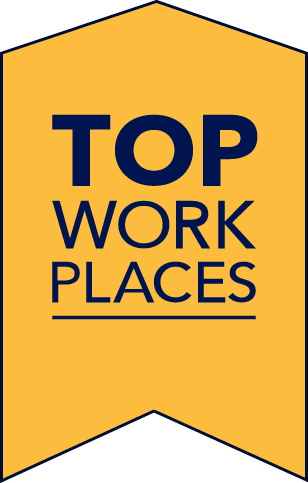The technology industry continues to grow, evolving to fit the needs of our ever-changing world. With a wide range of career opportunities, people can combine their business, innovation, and science skillsets. Tech jobs also offer lucrative salaries and more upskilling opportunities than other industries.
Consistent, stable tech growth means many high-paying jobs are available right now, and new opportunities will continue to emerge. Increasing levels of competition mean it’s more important than ever to complete all necessary technical training, do your research, and follow these tips.
Read on if you’re figuring out how to break into the tech industry.
How hard is it to get a job in tech?
Getting a job in the tech industry can be challenging, but the payoff is worth it with the proper education and experience. Growing levels of competition make it crucial to meet technical requirements and stand out against a swell of other qualified applicants.
Whether you’re launching your career or have years of experience, preparation is an essential step in looking for a job. These tips will help you figure out how to get a tech job with no experience or pivot to a more lucrative career:
- Find tech-related opportunities at your current job
- Explore online courses
- Showcase completed projects via an online portfolio
- Take simple freelance jobs to boost your resume
- Get comfortable with networking
- Find roles with growth opportunities
Benefits of a career in tech
All of that competition means one thing: Working in tech has big perks. The benefits of getting a job in the tech industry include:
- Higher salaries
- Innovation and evolution with trends
- Increased workplace flexibility
- Meaningful work and with tangible results
- Constant training and development opportunities
- Career growth opportunities
More than ever, exploring tech companies with the best work-life balance is crucial. Especially in this new world of remote work, offering flexibility is a great way to attract and retain top talent.
Six Steps to Find a Tech Job
Figuring out how to get a tech job without experience can be overwhelming. Before doing anything else, make sure you have these universal requirements for joining the industry:
Soft Skills:
- Collaboration
- Communication
- Organization
- Problem solving
- Resourcefulness
- Time management
Hard Skills:
- Certifications
- Degree in related field
- Learned skills
- Relevant experience
Whether in your resume or your networking, refer to these hard and soft skills often throughout your job search. Once you’ve determined you meet the skill requirements, follow these six steps to land the job you want.
1. Get a college degree
Wondering how to get a tech job? A college degree is a good first step. Not every company or hiring manager will require it, but a degree will help you be more prepared and stand out against the competition.
Some of the most beneficial degrees for high-paying jobs include information technology, computer science, web development, web design, computer networking, database management, and cybersecurity.
2. Apply for internships
Internships are a great way to explore different career options while gaining real-world experience. You’ll discover what you like to do, what you don’t like to do, and where you’re most likely to excel. Additionally, internships are a great way to network, share experiences, and practice self-promotion in a professional setting.
3. Network within the industry
When competition is fierce, it’s crucial to have networking skills. Attending events, connecting with people on LinkedIn, and scheduling one-on-one conversations with someone already in the tech industry will help strengthen those skills.
Networking is a great way to make an impact and connect with people who can either hire you themselves or refer you to someone else who can. Talking with other professionals is a fantastic opportunity to learn the ins and outs of the industry, plus it will prepare you to talk with future employers.
4. Showcase your experience online
Finding a job in tech is all about presenting yourself and your skills well. Especially in the world of technology, employers want to see creative and innovative self-promotion strategies. Like networking, showcasing yourself online is a great way to connect with people and make them remember you.
Some unique ways to show off your skills include building an online project portfolio, designing a personal website, making your LinkedIn pop, or creating an eye-catching virtual resume. Whatever you choose, make sure it’s easy for employers to learn about your skills and talents.
5. Use a custom resume for each job application
Tailoring your resume for each job application is well worth the added effort. Hiring managers read many resumes and will hire the candidate who best aligns with the position.
Consider both the role requirements and company mission. This will show a heightened interest in the position and also convey why you’re the best fit for the job.
6. Figure out as much about the company as possible before applying
Familiarizing yourself with the company’s mission, vision, and values will help you use relevant language in the application and interview process.
This preparation helps potential employees better understand a company’s culture and what to expect when working there. And maybe most importantly, it will ensure your values align with the company’s values, which is a necessary step in finding a job you love.
Find a Tech Career You’ll Love with Top Workplaces
Finding a job that meets your salary requirements is important. But it’s equally essential to find a job you’ll love. Research shows that finding a great place to work boosts engagement, morale, and productivity — and that’s a win-win for both you and the organization. Based on employee feedback, the Top Workplaces for Technology highlights the nation’s tech companies driven by excellence and a people-first culture.
Find more: Best Technology Companies to Work For
Does your company have an amazing culture that deserves recognition? Nominate your organization for Top Workplaces, the employer recognition program that offers awards in 60+ regional markets and national awards for culture and industry excellence.

 Stand out with an award-winning
Stand out with an award-winning